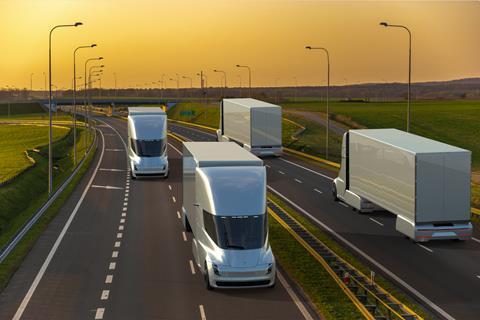The Environmental Protection Agency (EPA) has granted California’s request for a waiver that would allow the state to require half of all heavy-duty trucks sold in California to be electric by 2035.

California Governor Gavin Newsom calls this a “big deal for climate action,” as this move would make California the first state to require zero-emission trucks. The Advanced Clean Trucks (ACT) rule will require zero-emission trucks to account for 55% of all Class 2b-3 trucks, 75% of all Class 4-8 trucks, and 40% of all semi-tractor sales by 2035.
The Clean Air Act of 1970 prevented states from setting their own emissions standards, but California was granted an exception since the state was battling smog when the legislation was passed. The ACT rule was approved through two Clean Air Act waivers, and once implemented, will require truck manufacturers to accelerate their sales of zero-emission vehicles. The funds for this initiative come from the California Climate Commitment, a $53.9 billion investment in combating climate change and promoting cleaner and renewable energies.
While California is leading the charge in reducing heavy-duty truck emissions, other states such as Massachusetts, New Jersey, New York, Oregon, Vermont, and Washington have joined in the effort by introducing heavy-duty vehicle emission standards.
According to California government data, nearly 19% of all cars sold in the state last year were zero-emission vehicles. The state aims to expand its efforts to cut air pollution and protect public health by taking the most polluting vehicles, such as trucks and buses, off the streets.
However, not everyone is on board with this move. American Trucking Associations Chief Executive Chris Spear has criticised the EPA’s approval, calling the regulations “technologically infeasible” that could lead to a “future supply chain crisis.” Despite the criticisms, California continues to make significant strides in combating climate change and reducing harmful emissions.


















